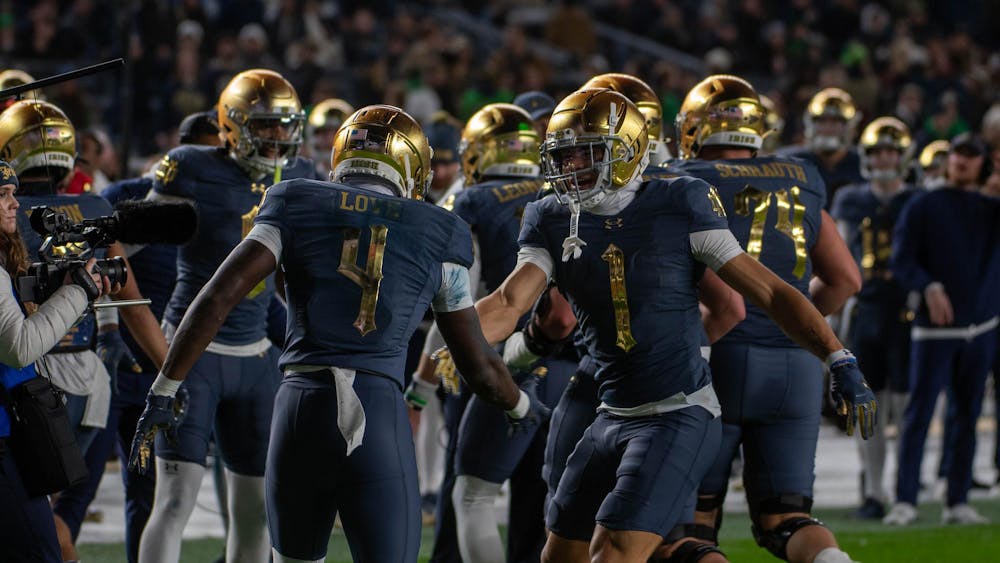Earlier this week, in what on the surface seemed like a banal move, Michigan head football coach Jim Harbaugh added to his coaching staff by hiring high school coach Michael Johnson as an assistant. Though seemingly mundane, the hiring had a clear ulterior motive: Johnson happens to be the father of Michael Johnson Jr., the top rated dual-threat quarterback in the class of 2019.
This isn’t the first time Harbaugh has employed such a tactic to lure a top recruit. In his two seasons with the program, he has signed Wayne Lyons, Biff Poggi and Devin Bush Jr. within uncomfortably close proximity to the hiring of one of their parents.
In defense of Harbaugh and Michigan, Johnson is clearly not wholly unqualified for an assistant position with the program: his previous credentials include a decade as an assistant in the NFL, time with UCLA and previous positions with both the esteemed Jim and John Harbaugh. Moreover, even if the hiring were primarily motivated by a desire to recruit his son, it would assuredly be far from the first time that programs in college sports have utilized the strategy. John Calipari has known about the trick since at least 2000, when he hired the father of Dajuan Wagner, the nation’s top recruit at the time. Why did future superstar Ben Simmons spend his one season in college basketball disinterestedly playing for a mediocre LSU team? Part of it certainly had to do with the fact that his godfather, David Patrick, was an associate coach for the Tigers.
For decades there have been countless of examples of strategic hirings to bring in certain players, which is — simply put — a problem. While some players might dream of playing for their dads in college, recruits should not have to feel pressure to play for schools that might hinder their development or potential accomplishments just because their parents or mentors are hired by the program. Take, for example, Villanova sophomore point guard Jalen Brunson.
Brunson, a heralded recruit from Chicago with offers to play pretty much wherever he wanted to when he left high school, almost ended up at Rutgers because they showed interest in hiring his father Rick Brunson. The hiring fell through when Rick Brunson faced criminal charges in 2015 — charges which he eventually was acquitted of.
Had Jalen followed his father to Rutgers he would likely at best have made a lowly Big Ten squad a bubble team in his four years with the university. Instead, Brunson is not even two years in at Villanova and he already has a national championship and is widely considered one of college’s best players. For a player not widely considered a top NBA prospect, the difference between playing for a team like Rutgers and a team like Villanova in what ultimately might be the pinnacle of Brunson’s career is undeniably significant.
Of course, recruiting in major college athletics is filled with unscrupulous practices that no ardent fan would ever fully want to learn about. The whole process can be likened to watching how hot dogs are made; when it comes to the recruiting it is almost best for fans to learn as little as possible about the grotesque and slimy procedures used in assembling their favorite teams.
So, compared to institutionalized escort services and monetary bribes, the hiring of parents to increase a recruit’s interest in a particular school might not seem quite as disturbing. However, it is a practice that is both unfair to recruits, putting them in situations where they feel pressured to pick schools that may not be in their best interest, and seemingly easy to halt with the adoption of a simple bylaw. Current rules and proposals have all been focused on making sure IAWPs (Individuals Associated With Prospects) are not hired outside of coaching. It is now time for the NCAA to focus on preventing IAWPs from being put on coaching staffs in close proximity to the recruitment of their children.
Read More
Trending









